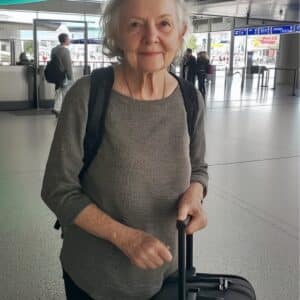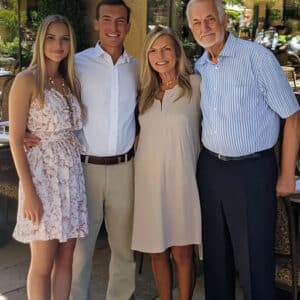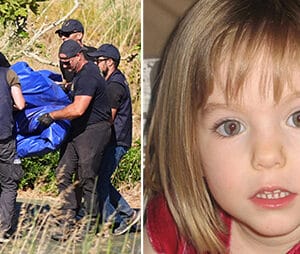I cared for an elderly woman for years, not knowing that the quiet bond we shared would change my life forever. When she passed, her long-absent family rushed in, expecting to claim her fortune. But what she left behind stunned everyone—and revealed the true meaning of family.
Mrs. Patterson wasn’t just my employer; she became my closest companion. I first met her when I took a caregiving job that seemed ordinary at the time. She was a wealthy widow with a hilltop estate, complete with blooming gardens, elegant hallways, and staff she no longer remembered by name.
Though her body was frail, her mind remained sharp—especially during Scrabble games and when baking her signature apple pies. She had children and grandchildren, but they visited just often enough to keep up appearances, flashing polished smiles and designer handbags. Once they left, she would sit by the window, quietly watching for them to return. They never did.
Over time, she and I became more than caregiver and patient—we were family. I rented a modest room nearby and saw her daily. Her laughter, her stories, and even her silence gave meaning to my own lonely life.
“Grace, you are my only true caregiver. I appreciate that,”
she told me one rainy afternoon as we watched the storm through her living room window.
“I don’t need thanks, Mrs. Patterson. I’ve enjoyed caring for you all these years,”
I replied, holding back tears.
She rarely spoke about her children. When she did, her voice carried the weight of disappointment. I saw how their eyes drifted toward her jewelry box and how they glanced over her antique collection with more desire than love. Still, she smiled when I held her hand.
“Grace, I’m pleased you’re here. I have no true family except you.”
“You are my family,”
I whispered back.
One morning, I found her in bed, holding a photo of her late husband and smiling in her sleep. She had passed peacefully. I was devastated. Still, I knew what she would want—I called her children to share the news.
They arrived quickly, not with tears of grief, but with eyes hungry for what they believed was theirs. The funeral was small. They offered hollow condolences and glanced at each other with greedy anticipation. No one asked how I was doing. They barely acknowledged me at all.
I returned home that night, emotionally drained. My room felt colder than ever. As I sat remembering her warmth and laughter, a knock at the door startled me. Two police officers stood outside.
“Are you Grace?”
one asked.
“Yes… is something wrong?”
I asked, my voice shaking.
“We need you to come with us.”
Fear gripped me. Had I done something wrong? Did someone accuse me of something after her death?
They took me to Mrs. Patterson’s estate. The same cold stares met me as I entered. Her daughter, Victoria, immediately pointed at me.
“That’s her! She manipulated Mom into leaving us nothing!”
I stood frozen. “I don’t understand.”
The family lawyer stepped forward.
“We’re here to read Mrs. Patterson’s will. Grace, you’ve been named in it.”
The room buzzed with tension. The lawyer cleared his throat and began.
“Forgive my children, for they abandoned me long ago.”
Gasps echoed through the room.
“To my grandchildren, I hope they learn the value of love and loyalty.”
Confusion spread across their faces.
“And to my Grace, my caretaker, my friend, my family… I leave all. House, land, money—everything.”
Pandemonium broke out.
“This is a lie!”
Victoria screamed.
“You tricked her!”
Mark lunged toward me but was stopped by guards.
I was stunned.
“I never asked her for anything. I just loved her,”
I managed to say.
The lawyer raised his hand.
“Mrs. Patterson expected this reaction. She left evidence—photos, handwritten letters, and records to support her decision.”
He handed me a box. Inside were photos of us baking, laughing, playing games—proof of a life lived together in loyalty and care. My hands trembled as I held her familiar cursive in a letter addressed to me.
The lawyer read one final note aloud:
“Grace, my caretaker, will need protection. I don’t expect my family to handle my will gracefully.”
Victoria collapsed into a chair.
“She left us nothing?”
“She said you left her first,”
the lawyer replied.
The guards escorted them out, leaving only silence in the grand home. The lawyer turned to me with a gentle smile.
“Grace, she loved you. This home, this gift—it’s what she wanted to give you. A real family.”
I broke down, overwhelmed with grief and gratitude.
“I loved her too.”
He placed the house key in my hand and helped me sign the documents. When everyone left, I stood alone in the grand hallway, every wall whispering memories of the woman I had loved and lost.
Mrs. Patterson didn’t just leave me a house. She gave me belonging. She gave me a home. She gave me proof that love—not blood—defines family.
Her so-called relatives? All they had left were regrets.





